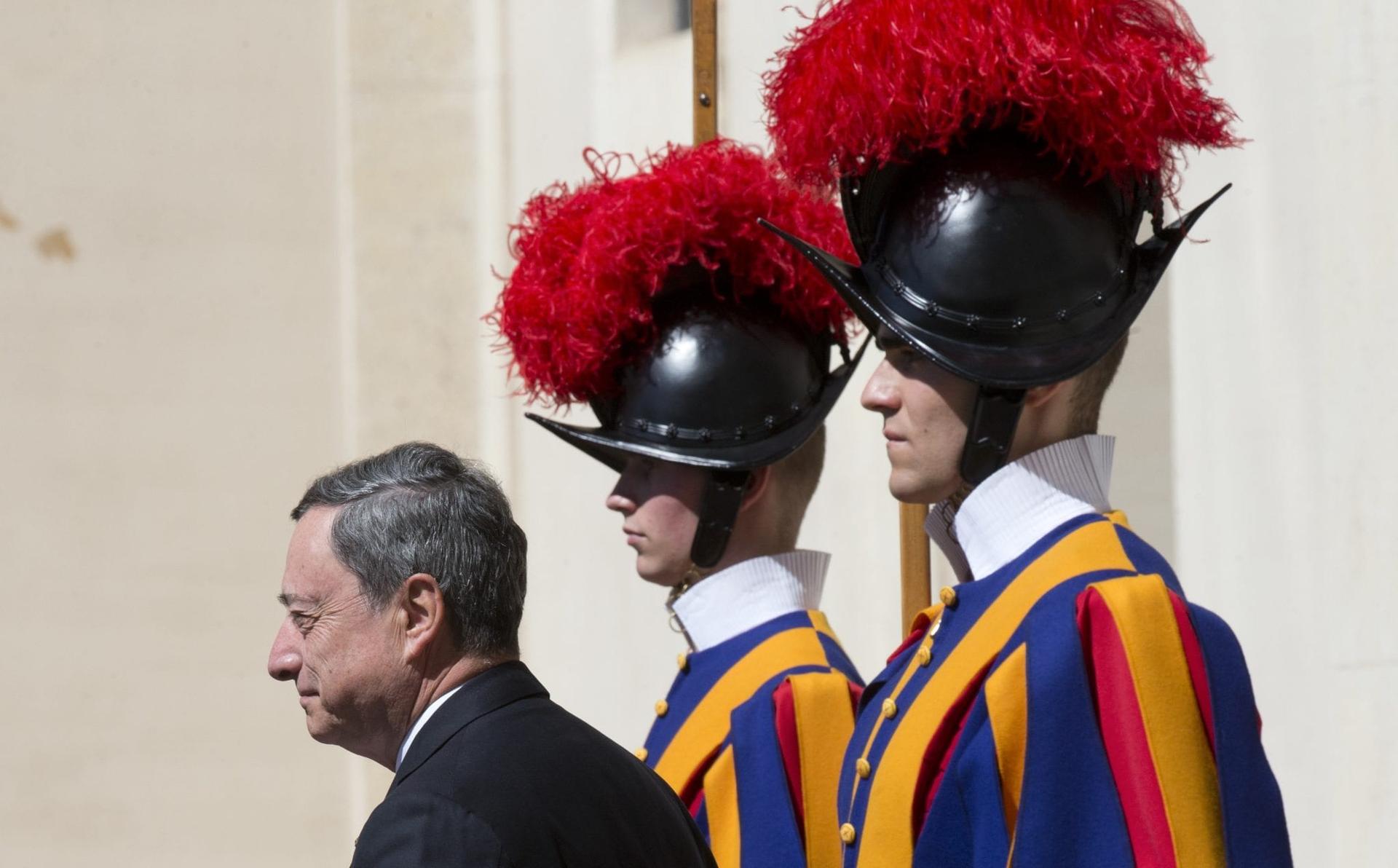ROME – Since he was elected in March 2013, Pope Francis has watched five Italian Prime Ministers come and go, and soon he’ll likely see a sixth take power. (Yes, that’s six prime ministers in under nine years. Welcome to Italy, where changing governments is the country’s favorite indoor sport.)
After efforts by exiting Prime Minister Giuseppe Conte to maintain a majority collapsed Tuesday night, the President of the Republic, Sergio Mattarella, announced he’ll hand a mandate to form a new government to the former president of the European Central Bank, Mario Draghi – or, as he’s known among Italians, “Super Mario,” in reference to the popular video game.
One imagines that upon hearing the news, Pope Francis couldn’t help but smile.
The Vatican actually liked Conte, a practicing Catholic whose uncle was a Capuchin and an aide to Padre Pio at the famed shrine of San Giovanni Rotondo. Yet Draghi is equally Catholic, and, what’s more, the religious order to which he’s got personal ties is the pope’s own Society of Jesus. To boot, Draghi is a member of the Pontifical Academy of Social Sciences, and it’s not every day that a member of a papal academy becomes a Head of State.
To be clear, Draghi isn’t in charge yet. He first has to win a vote of confidence in the two houses of the Italian legislature, and it’s not a foregone conclusion he’ll get it.
One of the leaders of the Five Star Movement, a leftist populist party with a strong parliamentary footprint, called Draghi an “apostle of the elite” Tuesday night and said he’ll vote no, while the leader of the center-right party Fratelli d’Italia (“Brothers of Italy,” the title of the national anthem) grumbled, “Enough with governments born in the laboratories of the palace!”, and demanded new elections.
On the other hand, observers here think it will be difficult for most legislators to vote against Italy’s most famous public figure internationally, a man described by Forbes in 2015 as the world’s “second greatest leader” (after Tim Cook, CEO of Apple) and who’s been described by Paul Krugman as arguably “the greatest central banker of modern times.”
Dragi served as Governor of the European Central Bank from 2011 to 2019, during the peak of Eurozone crisis, and is widely credited with saving Europe’s fiscal and monetary union. At one point he famously pledged to do “whatever it takes” to prevent the Euro from failing, and he delivered.
For whatever it’s worth, as Italy’s politicians decide whether or not to embrace Draghi, they’ll make that decision knowing he’s got the tacit blessing of the Vatican and Pope Francis.
Draghi has met the pope at least two times, once in October 2013 in a private audience with his family and again in May 2016 during a ceremony to present Francis with the Charlemagne Prize for European Unity. On that occasion, Draghi was seated in the front row along with Angela Merkel, Jean Claude Junker, Martin Schultz and Donald Tusk.
At first blush, Francis and “Super Mario” may seem an odd couple. Francis is the champion of the poor and patron of the “slum priests,” while Draghi inhabits the world of high finance and global capitalism, and he’s long been a champion of privatization of public enterprises.
Yet scratching beneath the surface, the simpatico between the two men has deep roots.
Born in Rome in 1947, Draghi lost both of his parents at the age of 15 and was taken in by an aunt, who sent both him and his brother to Rome’s Massimiliano Massimo Institute, a prestigious local school run by the Jesuits. Draghi spent most of the 1970s at the school, where he forged a personal friendship with the Jesuit who ran the place during his last five years, an Italian named Father Franco Rozzi.
(In 2005, Draghi, at the time the head of the Bank of Italy, was spotted by journalists one day walking through downtown Rome near the residence of then-Prime Minister Silvio Berlusconi, and he was asked if he was on his way to cut some deal. Draghi had to explain that he was actually going to visit Rozzi, who was in a nearby Jesuit facility.)
In 2010, when Rozzi died, Draghi penned a tribute in L’Osservatore Romano, the Vatican newspaper.
“His authority was beyond discussion,” Draghi wrote, “his justice administered with lucidity and equilibrium, always well explained, and often tempered by irony.”
The Jesuits have returned the favor, long seeing Draghi as a friend and point of reference.
In 2019, when Draghi finished his term at the European Central Bank, the Jesuit-run journal Civiltà Cattolica edited by Father Antonio Spadaro, perhaps Pope Francis’s closest adviser, published a 13-page paean to Draghi.
“In a completely unprecedented situation, dominated by uncertainty and skepticism, Draghi was able to make decisions on the basis of rigorous analysis, with audacity and guided by the highest vision of Europe, united by much more than money, in line with the project of the Founding Fathers,” the essay said.
Recall that in the argot of Pope Francis, calling someone “audacious” is high praise indeed.
So strong is the bond with the Jesuits that a popular Italian news magazine in 2015 dubbed Draghi “the governor devoted to St. Ignatius,” referring to St. Ignatius Loyola, founder of the order.
Politically, Draghi is a firm opponent of nationalist populism. He believes in European unity and international solidarity, and he’s also basically a social democrat who supports a strong safety net for the underclass. These are positions consistent with Francis’s own vision, especially as building blocks of a post-Covid world.
To sum up, Italy may soon have a Jesuit pope and a Jesuit-inspired Prime Minister. What remains to be seen is whether these two sons of Ignatius will be able to make beautiful music together.
Follow John Allen on Twitter at @JohnLAllenJr.
















